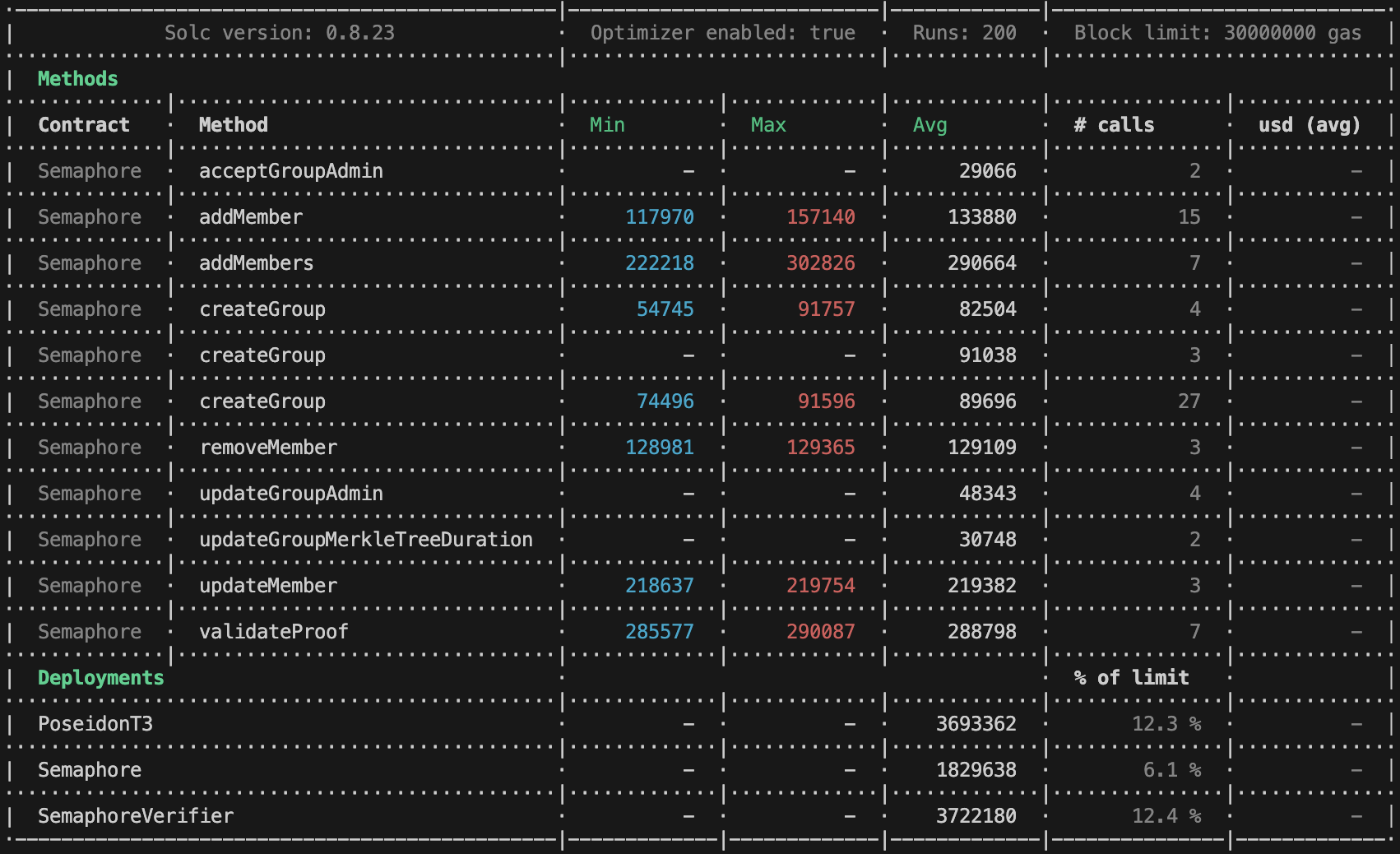Benchmarks
Semaphore v4 introduces new features and performance improvements. Detailed changes are available in the release changelog.
The primary changes in benchmark values are driven by the two major protocol updates:
-
New Identity schema.
-
LeanIMT: New optimized IMT.
New Identity schema
Semaphore v4 includes a new schema for the identities allowing the creation and verification of signatures.
Although the new Identity package is slightly slower than the one in Semaphore v3 (by just a few milliseconds), the trade-off is minimal considering the included functionality.
The new identity schema adds additional constraints to the Semaphore v4 circuit; however, this does not negatively impact overall performance of the protocol.
LeanIMT
Semaphore v4 uses the LeanIMT data structure for group operations, an improvement over the IMT used in v3.
For further details, see the LeanIMT paper.
The LeanIMT offers dynamic depth, resulting in faster and more cost-effective group operations, across Node.js, browser and smart contracts.
Semaphore v4 support tree depths from 1 to 32, while v3 supports depths from 16 to 32, both for proof generation and verification.
System Specifications and Software environment
All the benchmarks were run in an environment with these properties:
System Specifications
Computer: MacBook Pro
Chip: Apple M2 Pro
Memory (RAM): 16 GB
Operating System: macOS Sequoia version 15.6.1
Software environment
Node.js version: 23.10.0
Browser: Google Chrome Version 139.0.7258.156 (Official Build) (arm64)
Running the benchmarks
Javascript and Circom
GitHub repository to the run Node.js, browser and Circom benchmarks: https://github.com/vplasencia/semaphore-benchmarks
Solidity
GitHub repository to run the Solidity benchmarks: https://github.com/semaphore-protocol/semaphore
Semaphore V3 benchmarks were obtained using the code from the latest v3 Git tag (v3.15.2), with the Solidity optimizer enabled.
Node.js benchmarks
Identities

Create Group
Create group, either empty or with initial members.

Add Member
Add a member to groups with different sizes.

Generate Proof
Generate a proof using groups with different numbers of members.

Verify Proof
Verify a proof using groups with different numbers of members.

Browser benchmarks
Main functions used in the browser.
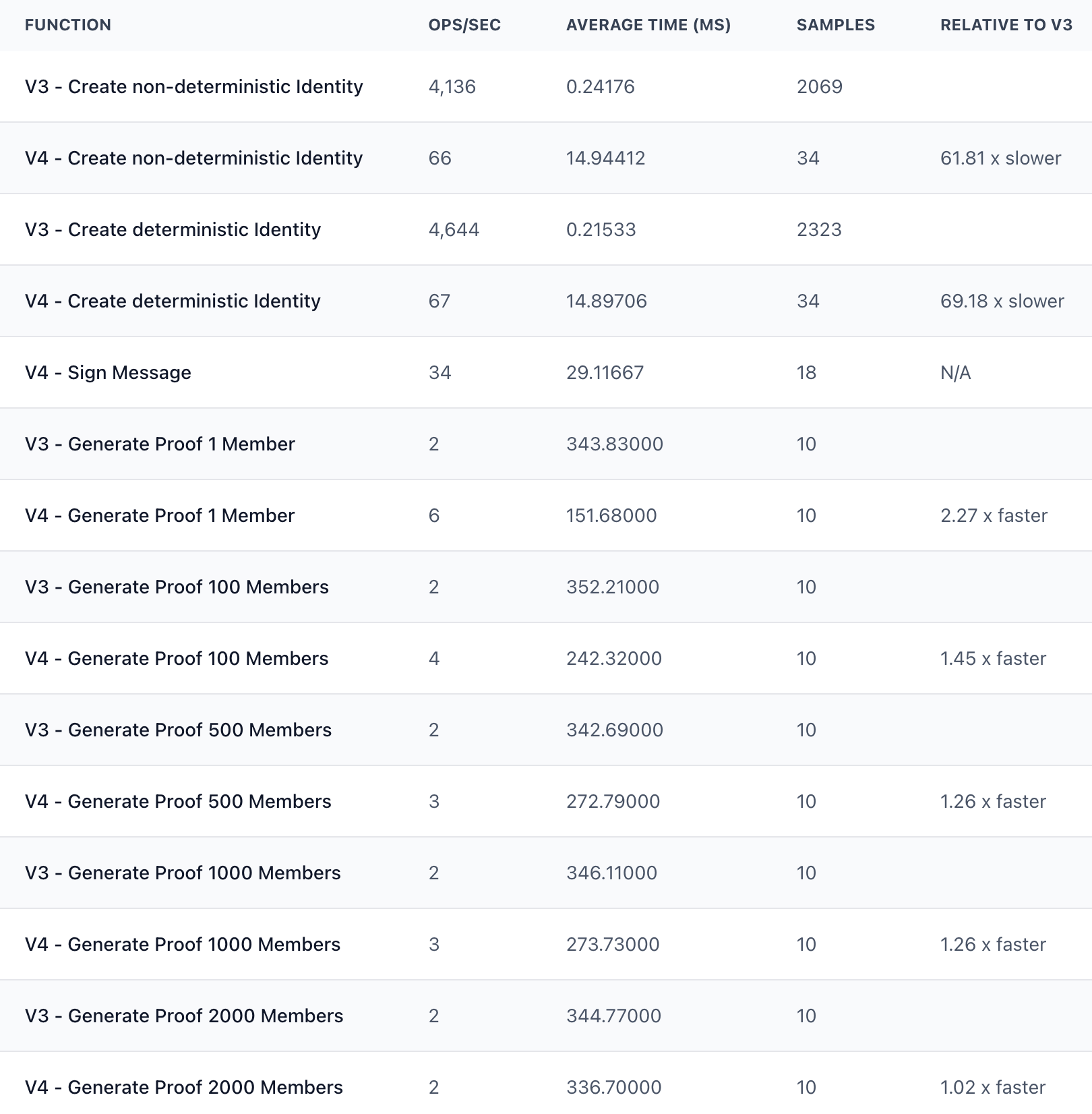
Circuit benchmarks
Tree depth = 20
Semaphore V3
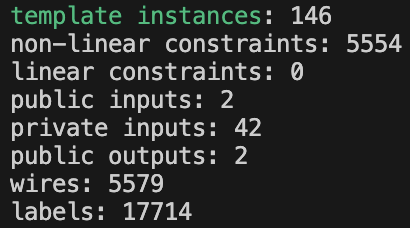
Semaphore V4
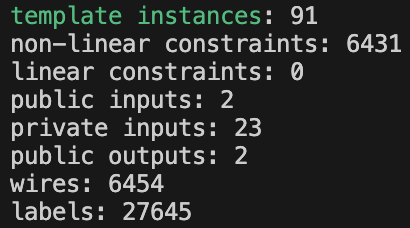
Contracts

Semaphore V3 gas report
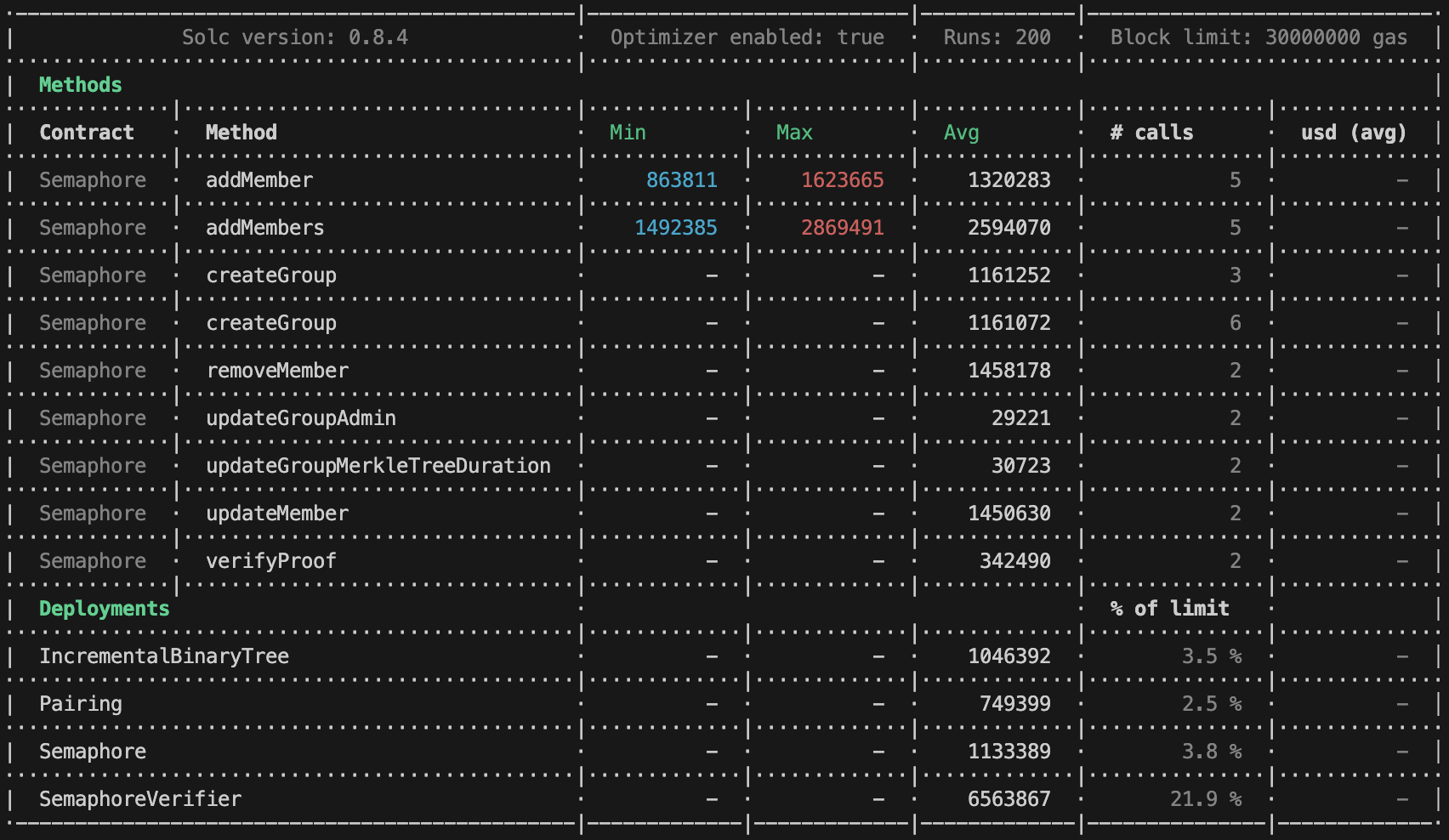
Semaphore V4 gas report
